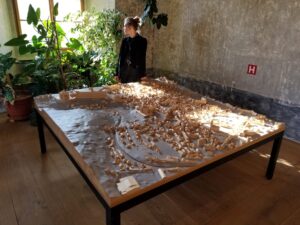1.In the chapter2 “What is literature and does it matter?” which is written by Jonathan Culler, he points out that literary and non-literary cannot be clearly defined according to their style, they can come in any style and being learned in the same way. How to define them depends on how readers think about them. Looking though history, literary and non-literary both act as the container of culture, have developed their diversity under many cultural backgrounds. Culler also attempts to address the most importance quality of the literature, which is utility. He lists an example in the article which he extracts random words from a context and line them on a page, the result shows that the sentence lost its function because it does not make sense anymore (24), this proves that utility is a vital quality of literature. In my opinion, the most important aspect of this chapter is defining how literary or non-literary helps human. Therefore, we need to learn how to efficiently extract useful information from the context, and to achieve this goal students need to be training systematically such as: “memorize them, study their grammar, identify their rhetorical figures and their structures or procedures of argument” (22), otherwise understanding them will become really difficult and exhausted. The reason why thinking about the definition of literature is so important because it is a natural phenomenon of the changing of cultural diversity, which reflects people’s values. Furthermore, literature advance people’s mind to become logical and positive, so reading literature it is worthy.
2.The question stays with me is if reading is like a conversation between literature and reader, will the values of reader cause a change of cultural diversity?



